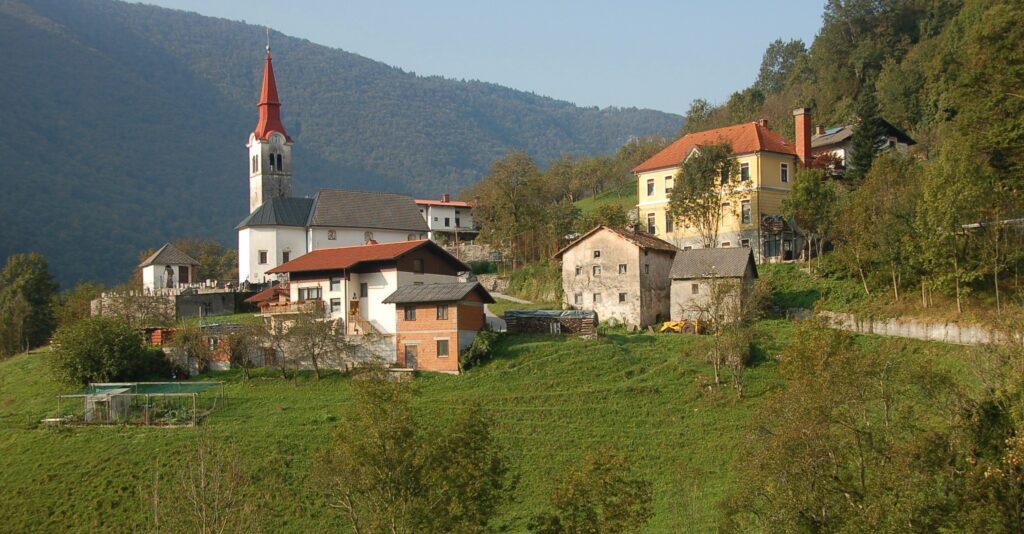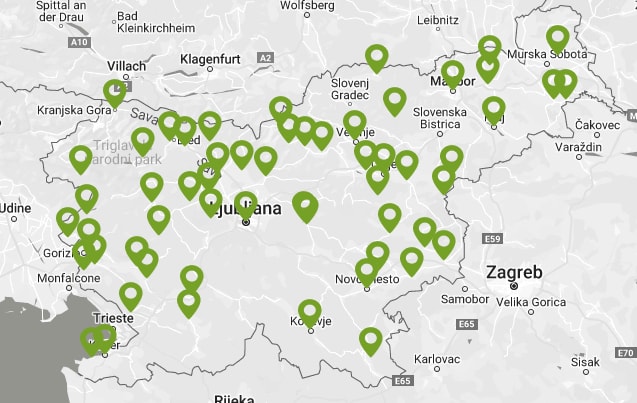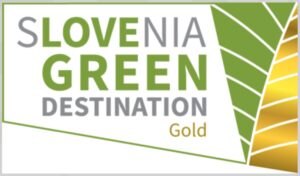We often see great accomplishments in destination sustainability by individual towns, counties, and even sizable cities. But how to get an entire country to adopt a comprehensive stewardship program? Hannah Bromm, with Dr. Jonathon Day, describes Slovenia’s award-winning solution for achieving systemic national change.

Slovenia Tourism’s Nationwide Green Scheme
Leaders seeking to establish sustainable tourism programs often face a challenge when trying to do it across regions and political boundaries. Yet Slovenia has created a program that has been adopted by communities throughout the country, creating an “ecosystem” of some 60 sustainable destinations.
The Green Scheme of Slovenian Tourism (GSST), an initiative of the Slovenian Tourism Board, is the largest sustainable tourism program in the country. Launched in 2014, this program aims to introduce sustainable practices to Slovenian tourism and encourage both tourism service providers and destinations to embrace sustainability in their operations. Since its inception, the certification program has grown to include over 200 members, comprising 59 Slovenian destinations, and numerous accommodations and other service providers.
Key Program Takeaways
-
- Slovenia has created an internationally recognized program that enables destinations to properly evaluate and achieve their sustainability objectives through an established set of criteria.
- Importantly, the program has been broadly adopted across the country, creating an “ecosystem” of sustainable destinations.
- Slovenia’s comprehensive program promotes sustainable development in all areas, including economic, social, cultural, and environmental sustainability.

Building a Framework for Sustainable Development
An important step in encouraging adoption of sustainability programs is to provide clear guidance on the tasks required to achieve them. In this case, the GSST includes a certification program that uses the globally-recognized criteria of the European Tourism Indicators System (ETIS) and Global Sustainable Tourism Council (GSTC) as a framework that encourages destinations to achieve a “Slovenia Green” label of Platinum, Gold, Silver, or Bronze. Service providers can obtain similar certifications in these categories: Accommodation, Park, Travel Agency, Attraction, Beach, and Cuisine (see accompanying “Gourmet Route” story).
 “The GSST ensures a framework with very concrete criteria that need to be followed by the destinations if they want to achieve the bronze, silver, gold, or platinum label,” according to Maša Klemenčič, project manager for the GSST.
“The GSST ensures a framework with very concrete criteria that need to be followed by the destinations if they want to achieve the bronze, silver, gold, or platinum label,” according to Maša Klemenčič, project manager for the GSST.
Program members, representing both products and destinations, are provided with a manual that outlines the rules on obtaining, maintaining, and renewing the Slovenia Green label. A designated GSST project manager provides additional support and education to destinations and service providers. In addition to training, those participating in the program receive access to promotional support, access to cooperative marketing opportunities, and grant funding opportunities, all of which allow for ongoing success and growth.

Importantly, acheiving certification allows destinations and providers an opportunity to be recognized for their ongoing performance improvements. However, Slovenia’s GSST program itself has also received international recognition for its success, further incentivizing participation from destination communities and tourism products across the country. As Maša notes:
“For Slovenia tourism as a whole, the GSST has given us direction, so sustainability and green tourism are not just a national strategy, but individual destinations and businesses have also started following this philosophy”.
Learn more about Slovenia’s tourism approach
- Green Scheme of Slovenia Tourism
- Slovenia’s National Strategy
- Recognized in 2018 by National Geographic’s online “In the News” as the World’s Most Sustainable Country
This story was submitted by Purdue University’s Sustainable Tourism & Responsible Travel Lab. It demonstrates GSTC Destination Criterion A4: Enterprise engagement and sustainability standards and two key U.N. Sustainable Development Goals (SDGs):
SDG 12: Responsible Consumption and Production
SDG 17: Partnerships for the the Goals
Source for this story: Slovenia Tourism Board

